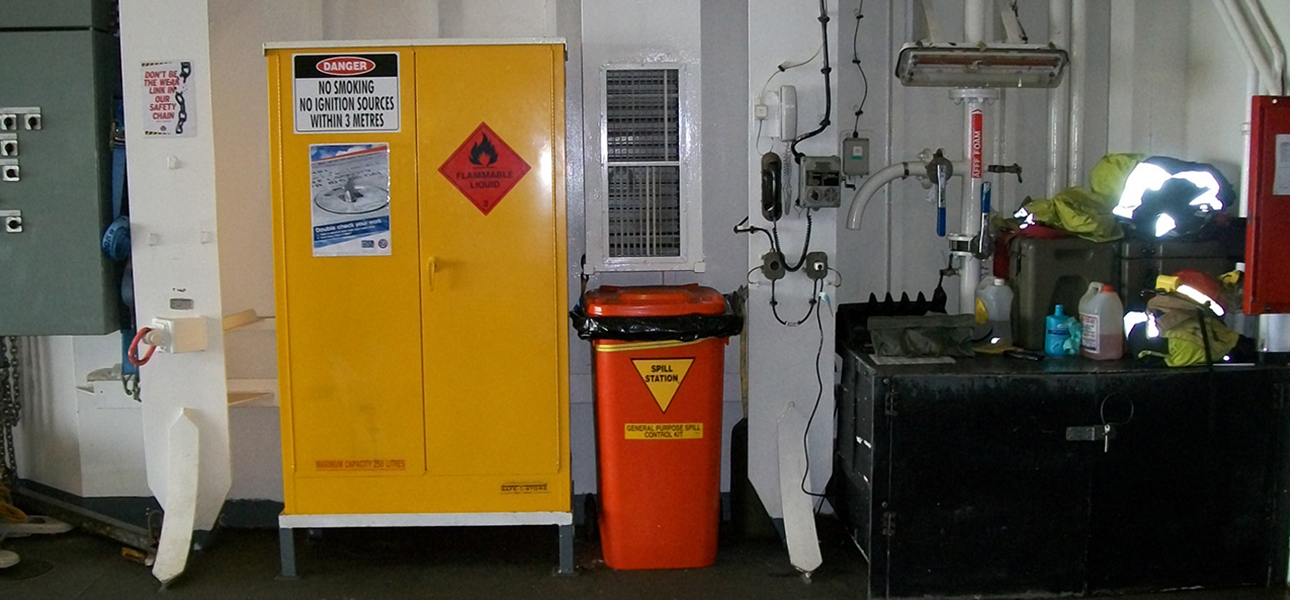As well as being extremely rewarding and satisfying, running an SME in the Australian legal landscape can be a challenging proposition. Once you have met all of the legal requirements of setting up the business, you must have an understanding of the legal aspects of workplace safety and environment protection and how they impact the way you operate. Failure to meet your obligations can be a very expensive lesson.
Whether it is cleaning chemicals, industrial chemicals or oils and fuels, almost all companies deal with substances that require safety and environment protection precautions.
Work Health Safety (WHS) Regulations
In 2011, Safe Work Australia developed a single set of WHS laws to be implemented across Australia.
The WHS Regulations that set out the concise requirements under the Act contains specific references to spill control in Subdivision 2 Spills And Damage.
Section 357(3) of the regulations states:
The person must ensure that the spill containment system provides for the cleanup and disposal of a hazardous chemical that spills or leaks, and any resulting effluent.
Maximum penalty:
(a) in the case of an individual—$6,000, or
(b) in the case of a body corporate—$30,000.
Ensure you have the right spill kits on site to deal with any incident that may arise.
Environment Protection (EP) Legislation
Each state and territory has its own EP legislation. While there are variations between them they all carry the same duty of care requirement.
Companies and individuals must ensure that all reasonable steps are taken to minimise the negative actual or likely impacts on the environment caused by any foreseeable incident arising from their activities.
With regard to spill control, this basically means that if you have chemicals, a spill is a foreseeable incident. If an incident occurs and you fail to have the appropriate storage and spill response measures in place, penalties of up to $5,000,000 and 7 years gaol can apply.
Book an onsite spill preparedness audit from one of our trained site inspectors to help you to identify potential issues and implement solutions.
Australian Standards
Whilst not legally enforceable in themselves, Australian Standards set a benchmark for performance, construction, process and maintenance in a wide field of areas. These standards do become mandatory however when they are called up in legislation.
Australia has a range of standards relating to the storage and handling of all classes of chemicals. All of these standards make reference to the correct storage requirements and the need to have compliant safety shower & eyewash equipment, appropriate spill response equipment and safety cabinets.
When assessing a claim, insurance companies use the standards determine that the claimant has operated using best practice. Failure to adhere to the correct standard, eg. failure to store flammable liquids safely, may result in the claim being rejected.
Australian Standards can also be used in legal setting as a benchmark of best practice when assessing negligence and culpability.
The team at Spill Station can help you to understand you what is required for you to meet the requirements of the various Australian Standards.
Codes of Practice (COP)
Codes of practice are issued to provide clear practical instruction on how best to adhere to enforceable regulations.
Section 6.2 of COP Managing The Risks Of Chemical Hazards In The Workplace states:
Equipment must be located so it is readily accessible for all workers if an emergency arises.
If safety equipment is needed to respond in an emergency, you must ensure that it is provided, maintained and readily accessible at the workplace. Safety equipment for use with hazardous chemicals should be compatible with the hazardous chemicals they may come in contact with.
It goes on to list examples of the equipment needed including overpacks, absorbents, containment booms, drain covers and safety showers/eyewash stations.
For almost 40 years, Spill Station Australia has been advising Australian Government and Industry on how to operate in a lawful manner and progress towards best practice.
The Spill Station team of trained site assessors can attend your site and advise you on how best to satisfy your legal obligations. Their range of spill control and response equipment meets or exceeds all relevant Australian Standards and can be tailored to provide you with a cost effective total solution.

